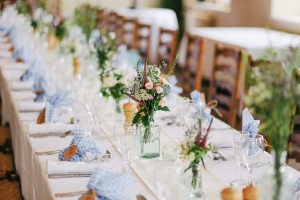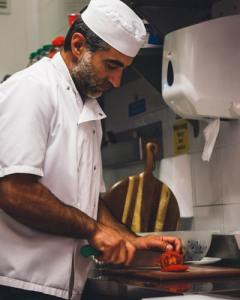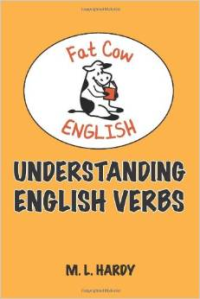Categories
- Advanced (Level 6+)
- Beginner (Level 1)
- Cambridge
- Children
- Elementary (Level 2)
- ESL Teachers
- Grammar
- IELTS
- Intermediate (Level 4)
- Listening
- Pre-Intermediate (Level 3)
- Pronunciation Videos
- Reading
- Relative Clauses
- Songs
- Speaking & Pronunciation
- TOEFL
- TOEIC
- Upper Intermediate (Level 5)
- Videos
- Vocabulary
- Writing
-
Feedspot.com Award
 Winner of POQ Best English Education Website
Winner of POQ Best English Education Website
Christmas 2023


 Happy Christmas!
Happy Christmas! 


It’s that time of year again when many of us prepare to celebrate Christmas. Traditionally, for Christians, it is about celebrating the birth of Jesus Christ approximately 2,000 years ago. However, Christmas has become an important time for celebrating with family and friends for both Christians and non-Christians. Let’s have a look at some of the ways we observe Christmas:
![]() For over 2,000 years, Christians have celebrated the arrival on earth of a very remarkable person: Jesus of Nazareth. We know a lot about Jesus because of widespread writings, not just from his followers, but also from well-known scribes of the time. Jesus was a historically real person. His teachings of love, compassion, forgiveness, and acceptance appealed to all kinds of people as well as his message of hope for a new life after we pass on from this one. He practised what he preached, being kind and non-judgmental. You could say that he was, and is, the perfect role model.
For over 2,000 years, Christians have celebrated the arrival on earth of a very remarkable person: Jesus of Nazareth. We know a lot about Jesus because of widespread writings, not just from his followers, but also from well-known scribes of the time. Jesus was a historically real person. His teachings of love, compassion, forgiveness, and acceptance appealed to all kinds of people as well as his message of hope for a new life after we pass on from this one. He practised what he preached, being kind and non-judgmental. You could say that he was, and is, the perfect role model.
Christians attend Church on Christmas Eve or Christmas Day. They listen to readings about the special night when Jesus was born, pray together and sing Christmas Hymns. (My favourite is ‘O! Holy Night.’) It’s a very happy occasion!
![]() Giving presents, decorating Christmas trees and homes is also traditional for many. Children in particular love all this Christmas activity and get very excited at the thought of a visit from Santa.
Giving presents, decorating Christmas trees and homes is also traditional for many. Children in particular love all this Christmas activity and get very excited at the thought of a visit from Santa.

Photo by Ann Danilina on Unsplash.com
Presents are opened on Christmas Eve or Christmas Day or at a party beforehand. Many workplaces have parties and some, organize a ‘Secret Santa’. We pick the name of a colleague out of a hat and buy a gift for that person. No-one knows who has provided their present. It’s lots of fun! Not everyone is a Christian but that doesn’t matter. It’s the ‘Spirit of Christmas’ that is important: a feeling of goodwill towards everyone.
![]() In Australia, as in many western and European countries, this is an occasion for being with family, especially family whom we don’t see regularly. We get together and tend to eat and drink too much! It’s a busy time, when we acknowledge the importance of family.
In Australia, as in many western and European countries, this is an occasion for being with family, especially family whom we don’t see regularly. We get together and tend to eat and drink too much! It’s a busy time, when we acknowledge the importance of family.
![]() If you would like to join in the Christmas festivities and you don’t have a family or friends to celebrate Christmas with, I strongly recommend that you contact a Christian church nearby; for example, The Catholic Church, The Anglican Church, The Pentecostal Church, The Presbyterian Church, The Methodist Church, or The Salvation Army. They welcome everyone, provide a lovely Christmas dinner and a jolly experience and expect nothing from you. You don’t need to be a Christian. You don’t have to attend a church service and you just might make some friends! Alternatively, church services can be viewed online. Just open You Tube and search: ‘Christmas Mass’. It is streamed live on Christmas Day and on Christmas Eve.
If you would like to join in the Christmas festivities and you don’t have a family or friends to celebrate Christmas with, I strongly recommend that you contact a Christian church nearby; for example, The Catholic Church, The Anglican Church, The Pentecostal Church, The Presbyterian Church, The Methodist Church, or The Salvation Army. They welcome everyone, provide a lovely Christmas dinner and a jolly experience and expect nothing from you. You don’t need to be a Christian. You don’t have to attend a church service and you just might make some friends! Alternatively, church services can be viewed online. Just open You Tube and search: ‘Christmas Mass’. It is streamed live on Christmas Day and on Christmas Eve.
![]() Australian Christmas is different to Christmas in the Northern Hemisphere where it is cold in December. Here, it is summer and while some households still enjoy roast turkey, hot vegetables, and hot Christmas pudding, many of us prefer cold meat, seafood and salads and cold or fruit-based desserts. Pavlova, cheesecake, and ice cream pudding are favourites.
Australian Christmas is different to Christmas in the Northern Hemisphere where it is cold in December. Here, it is summer and while some households still enjoy roast turkey, hot vegetables, and hot Christmas pudding, many of us prefer cold meat, seafood and salads and cold or fruit-based desserts. Pavlova, cheesecake, and ice cream pudding are favourites.
Because it is very hot here, barbecues are very popular which means that cooking indoors is unnecessary. After lunch, the beach is popular for those fortunate enough to live near one or holiday at one. Summer in Australia is holiday season, especially for school children and their families, and Christmas lunch or dinner is often casual: delicious and special, but simple. The beach is calling!

The beach is calling! Many thanks to Britt Gaiser from unsplash.com for this photo.
If you would like to listen to some delightful Christmas Carols sung by Michael Bublé, click here. To hear a magnificent version I’ve recently discovered of a traditional Hymn , click here.
I hope you have a
Very Merry Christmas & a
Happy, Healthy, and Prosperous 2024!!
![]()
![]()
![]()
![]()
![]()
![]()
![]()
English Inversion #1: Why? When? How?

Only by swimming with sharks will we overcome our fear of them.
Photo by Michael Liao on Unsplash
One of the first things you learn when you start learning English is the word order in sentences. The subject comes before the verb:
SUBJECT VERB
you learn
you start
The subject comes
Then, you learn that question word order is different. Usually, the auxiliary verb comes before the subject. This is called INVERSION because we invert the subject and auxiliary verb.
Question word order:
Have you ever swum with sharks? Why are people afraid of them? What do you think? Will we ever overcome our fear of sharks?
VERB SUBJECT
have you ?
are people ?
do you ?
will we ?
We can use Inversion in sentences which are not questions:
Only by swimming with sharks will we overcome our fear of them.
Rarely have I seen such a weird lipstick advertisement!
You can continue with your English studies and never use Inversion in sentences. That’s perfectly okay. However, if you are preparing for a Cambridge or IELTS exam or other exams or situations where you need to demonstrate an extensive use of English, you will be expected to know about Inversion.
Let’s start with why and when. After all, if you don’t know why we use Inversion, you won’t know when to use it.
WHY & WHEN do we use INVERSION?
Inversion is mainly used for EMPHASIS. The expressions used (never, rarely, no sooner, only then, etc.) have much more impact when used at the beginning of a sentence than the more common pronoun subject, especially as most of them are negative.
Negatives are more dramatic. Consider negative contractions: don’t, won’t, can’t, haven’t, etc. They usually have strong stress in English whilst positive contractions: I’m, he’ll, she’s, we’ve, I’d, etc. usually have weak stress.

Rarely have I seen such a weird lipstick advertisement!
Photo by ian dooley on Unsplash
INVERSION is used
1. to emphasize the uniqueness of an event,
2. to stress how quickly something happened after something else had been completed,
3. to clarify a situation, and
4. to sound more formal.
INVERSION is also used:
5. after clauses beginning with ‘nor’.
![]()
![]()
![]()
![]()
![]()
![]()
![]()
![]()
Compare the Inversion examples below with the standard sentence examples. Try to imagine how much easier it would be for the speaker to stress words like: Never … Rarely … Not until … (than: I … We … People … When)
1. to emphasize the uniqueness of an event
Never have I been so relieved to see anyone in my life!
Standard sentence:
I have never been so relieved to see anyone in my life.
‘Rarely does someone simply return to “business as usual” after seeing a Dan Pink presentation’.
Standard sentence:
People rarely return to “business as usual” after seeing a Dan Pink presentation.
Seldom am I impressed with
Hollywood celebrities.
Standard sentence:
I am seldom impressed with
Hollywood celebrities.
Hollywood celebrities seldom impress me.
2. to stress how quickly something happened after something else had been completed
Scarcely had I finished cooking when the guests arrived.
Standard sentence:
I had scarcely finished cooking when the guests arrived.
No sooner had we started the meal than someone knocked at the door.
Standard sentence:
We started the meal and immediately someone knocked at the door.
As soon as we started the meal, someone knocked at the door.
Barely had I served dessert when everyone started checking their phones!
Standard sentence:
When I served dessert, everyone started checking their phones.
As soon as I served dessert, everyone started checking their phones.
Can you detect the sense of exasperation that the speakers in the Inversion examples feel? The emphasis is on the timing more than the subject.

Barely had I served dessert when everyone started checking their phones!
Photo by jwlez on Unsplash
3. to clarify a situation
Note how the sentences with Inversion have a sense of urgency whilst the standard sentences are more casual.

Only then did we realise what was possible!
Photo by Chris Barbalis on Unsplash
Only after she won the gold medal in the 400-metre dash did Cathy realise the enormous pressure she’d been under.
Standard sentence:
It was only after she won the 400-metre dash that Cathy realised the enormous pressure she’d been under.
On our trip to Milan, Italy we saw fantastic Green Buildings. Only then did we realise that cities could be environmentally responsible and resource-efficient!
Standard sentence:
It was only when we saw the Green Buildings in Milan that we realised that cities could be environmentally responsible and resource-efficient!
Little was Henry aware of the damage caused by his thoughtless actions.
Standard sentence:
Henry was not aware of the damage caused by his thoughtless actions.
4. to sound more formal

Had I known you were in town, I would have invited you! Photo by Lanty on Unsplash
Had I known you were in town, I would have invited you!
Standard sentence:
If I had known you were in town, I would have invited you!
Had they understood your situation, they might have helped you.
Standard sentence:
If they had understood your situation, they might have helped you.
5. after clauses beginning with ‘nor’
I don’t believe in scarcity, nor do I believe that the grass is greener on the other side.
Standard sentence:
I don’t believe in scarcity and I don’t believe that the grass is greener on the other side.
I haven’t been to Japan, nor do I expect to visit there in the near future.
Standard sentence:
I haven’t been to Japan and I don’t expect to visit there in the near future.
![]()
![]()
![]()
![]()
![]()
![]()
![]()
![]()
![]()
HOW do we use INVERSION?
…… to be continued.
This post is quite long enough! I will continue in a future post. Meanwhile, you can try to get used to the Inversion examples I’ve given above before I explain the rules and structures.
I have found a song Never Ever by ‘All Saints’ which features the lines:
Never ever have I ever felt so low …
Never ever have I ever felt so sad …
Never ever have I had to find …
I suggest that you listen to the song until these clauses are locked into your long-term memory! It won’t take long. There is a lot of repetition. Click here for the YouTube video.
Subscribe above to receive an email when I post my next Inversion lesson.
![]()
![]()
![]()
![]()
![]()
![]()
![]()
![]()
![]()
Relative Clauses #11: Advanced non-defining Relative Clauses
First, read the earlier posts on Relative Clauses, especially #3 and #6.
Advanced non-defining Relative Clauses are not as difficult as their name suggests. There are only two Relative Clause Pronouns used, whom & which, and the Relative Clause is usually at the end of the sentence.
If you are studying for an IELTS or CAMBRIDGE exam, or any test in which you have to write well, you will need to show that you can incorporate Relative Clauses into your sentences.
 Advanced non-defining Relative Clauses are easy to create because you can just add them to the end of a sentence, and the result is impressive Complex grammar. They can refer to some or all of the information contained in the previous part of the sentence or just one word.
Advanced non-defining Relative Clauses are easy to create because you can just add them to the end of a sentence, and the result is impressive Complex grammar. They can refer to some or all of the information contained in the previous part of the sentence or just one word.
♦ Next year, I’m going to Sicily and Malta with my sister. I’m really looking forward to it.
When I say ‘I’m really looking forward to it‘ , I am not just talking about Sicily and Malta. I am also talking about going with my sister next year. It relates to the whole sentence: Next year, I’m going to Sicily and Malta with my sister.
The two simple sentences above are okay for speaking but not good enough for writing. It’s easy to improve them with a Relative Clause. When you have a pronoun (in this example, it) which refers to a previous sentence or clause, you can use an Advanced non-defining Relative Clause:
♦ Next year, I’m going to Sicily and Malta with my sister, which I’m really looking forward to.
Q. What am I looking forward to? A. Going to Sicily and Malta with my sister next year.
Q. What am I looking forward to? A. It.
The Relative Pronoun which replaces it.

Caltagirone, Sicily Photo by davide ragusa on Unsplash.com
Here are more examples of sentences with Advanced non-defining Relative Clauses.
#1. Germany won the FIFA World Cup in 2014, which really annoyed some people.
#2. Even though they have six children and seemed to be the perfect couple, Angelina Jolie and Brad Pitt separated in 2016, which shocked a lot of people.
Here are more examples of how to combine two sentences with an Advanced non-defining Relative Clause. Them is an object pronoun, so for people we need to use the Relative Pronoun whom.
#3. I have two sisters. Both of them live in Melbourne.
I have two sisters, both of whom live in Melbourne.
#4. I have three brothers. Two of them live in Melbourne.
I have three brothers, two of whom live in Melbourne.
#5. I have two children. One of them lives in Queensland. One lives in Sydney.
I have two children, one of whom lives in Queensland and one of whom lives in Sydney.
I have two children, neither of whom lives in Melbourne.
#6. There are several choices for breakfast. They all look delicious.
There are several choices for breakfast. All of them look delicious.
There are several choices for breakfast, which all look delicious.
There are several choices for breakfast, all of which look delicious.
We use which for objects/things and whom for people.
The following table lists common Relative Clause Phrases used in Advanced non-defining Relative Clauses:
Which
|
Whom |
| Which | |
| One of which | One of whom |
| Two of which | Two of whom |
| Both of which | Both of whom |
| Neither of which | Neither of whom |
| Most of which | Most of whom |
| All of which | All of whom |
| Some of which | Some of whom |
| None of which | None of whom |
| 3, 4, a few, several etc … of which | 3,4, a few, several etc … of whom |
I’m sure that if you can see the patterns and create examples which are relevant to you, you will remember the rules more easily. I suggest that you write down the following sentences and fill in the gaps with your own information. *Remember to use a verb in the Advanced non-defining Relative Clauses and the verb must agree with the number; for example, one lives, none wants, neither lives, all look, both are.
♦ My two favourite movies are ______ and ______ , both of which _________.
♦ Three songs I love are _____ , _____ , and ____ , all of which ___________.
♦ At High School, I studied ____ , _____ , and _____ , only one of which I ____ .
♦ I have (number) close friends, one of whom is ____ , and one of whom is ____ .
♦ Next year, I’m going to _____________ , which I’m really looking forward to.
Now, try writing some sentences about your family and where they live, similar to the ones I’ve written above about my family, all of which are true sentences! Just copy the pattern. If you would like me to check your sentences, you can write to me by clicking on Contact Me at the top of the page, or click on Leave a comment below.
Alas, I couldn’t find a song to use in this post! If any of you can think of a song which features Advanced non-defining Relative Clauses, please let me know.
Gerunds & Infinitives – What is the difference?
GERUNDS
Gerunds are usually nouns but they are different from other nouns because they are made from verbs.
∗ Changing verbs into other forms: nouns or adjectives, for example, is common in many languages. Think about how your language changes verbs into other forms as you continue reading.
♦ Gerunds are always singular: Cooking dinner takes a long time.
Cooking is hard work.
♦ The ‘ing’ form of the verb is always used: However, I love cooking
♦ Gerunds are the names of activities: eating, drinking, playing, watching, skiing, horse-riding. Can you see a pattern here? When we want a word to name the activity (noun) caused by the verb, we often use a gerund.
If you can replace a gerund with a pronoun, for example, ‘it’, then the gerund must be a noun! Pronouns can only replace nouns. (pro = for) Here are the above three sentences with the gerund, cooking, replaced with ‘it‘:
It takes a long time.
It is hard work.
I love it!
♦ Gerunds are very common in everyday spoken English. They can be the Subject, the Object, or the Complement in a sentence:
Changing verbs into other forms is common in many languages. (Subject: ‘Changing verbs into other forms’ is a gerund phrase. You can replace all of it with the pronoun ‘it’: It is common in many languages.)
Skiing is a popular winter sport. (Subject)
Children seem to learn skiing easily. (Object of ‘learn’)
The most popular winter sport in many countries is skiing. (Complement of ‘is’)
In the sentence, “Anthony saw some sharks when he was snorkelling in the Philippines last year.”, “snorkelling” is a participle – part of the verb “was snorkelling”.
In the sentence, “My children love snorkelling“, “snorkelling” is a noun. It is the object of “love“. An object is a noun.
∗ Note that in the above sentence, there is no indication that the children are actually snorkelling, unlike Anthony who was no doubt swimming very quickly after he saw the sharks. All we know is that the children love that activity. “My children love it.” The word “it” is the object of “love”. The pronoun “it” replaces “snorkelling” in the above sentence, so “snorkelling” must be a noun. It is a Gerund.
♦ ♦ ♦ ♦ ♦ ♦ ♦ ♦ ♦ ♦ ♦ ♦ ♦ ♦ ♦ ♦ ♦ ♦
INFINITIVES
Infinitives are the names of verbs: TO + BASE VERB. For example: to be, to have, to go, to look, to swim. When you look up a verb in a dictionary, it is the Base form that is listed first. Infinitives and Base verbs have no tense.
It is very common to use more than one verb in a clause. However, only one tense per clause is permitted! Again, think about your language and the rules for verbs. Infinitives have no tense, so they are used to add information without affecting the tense of the verb, without affecting ‘when’:
I want to study Architecture at University. (want = Present Simple Tense)
I wanted to study Architecture at school, but it wasn’t a school subject. (wanted = Past Simple Tense)

Photo by Alex Vasey Unsplash.com
I have wanted to study Architecture ever since I saw the Leaning Tower of Pisa. (have wanted = Present Perfect Tense)
In the main clause of the above three sentences, the different forms of the verb ‘want’ show tense. The infinitive ‘to study’ adds meaning only.
♦ ♦ ♦ ♦ ♦ ♦ ♦ ♦ ♦ ♦ ♦ ♦ ♦ ♦ ♦ ♦ ♦ ♦
It is important to know when to use Gerunds after verbs and when to use Infinitives after verbs.
♦ Some verbs can be followed by a Gerund or an Infinitive:
I love going out on Saturday nights with my friends.
I love to go out on Saturday nights with my friends.
♦ Some verbs cannot be followed by an Infinitive. If you want to follow the verb with another verb, you have to use a Gerund:
I finished cleaning the house at 10pm. I finished to clean the house at 10pm.
I enjoy going out with my friends. I enjoy to go out with my friends.
Of course, you can follow ‘finished’ and ‘enjoy’ with other word forms:
I finished my exams yesterday. (verb + noun + adverb)
I enjoy funny movies. (verb + adjective + noun)
♦ Other verbs cannot be followed by a Gerund. If you want to follow the verb with another verb, you have to use an infinitive:
Rou decided to study English in Australia. Rou decided studying English in Australia.
After that, she is planning to continue her studies in Taiwan. After that, she is planning continuing her studies in Taiwan.
Of course, you can follow ‘decided’ and ‘is planning’ with other word forms:
Rou decided on a holiday in Spain. (verb + preposition + noun)
After that, she is planning further study. (verb + adjective + noun)
♦ ♦ ♦ ♦ ♦ ♦ ♦ ♦ ♦ ♦ ♦ ♦ ♦ ♦ ♦ ♦ ♦ ♦
There is no easy rule to help you know if a verb is followed by a Gerund or an Infinitive. The way I see the difference is (usually) this:
Gerunds describe an activity (IT). It might not happen.
Infinitives describe an action (TO DO IT) which happens/happened/will happen.
Have a look at these two sentences:
1. I love cooking.
2. I love to cook on the weekends when my parents visit.
1. I love cooking. (I love it.)
I love watching Masterchef and *cooking videos on Youtube. I have some excellent recipe books. I love food and trying new dishes. I do all the food shopping. However, I never cook because my husband is a chef! (*cooking = adjective gerund)
2. I love to cook on the weekends when my parents visit. (I love to do it.)
I do it when my parents visit. What do I do? I cook.
♦ ♦ ♦ ♦ ♦ ♦ ♦ ♦ ♦ ♦ ♦ ♦ ♦ ♦ ♦ ♦ ♦ ♦
Try to remember the difference between gerunds and infinitives the way you learn new vocabulary. Online exercises are a good way to practise and remember:
• Click here for a website that categorizes which types of common verbs are followed by gerunds and which types of common verbs are are followed by infinitives. It is an excellent reference.
The site also lists songs which feature gerunds. However, not every word ending in ‘ing’ is a gerund! Some are participles; some are part of reduced Relative Clauses. I have focused on one of the songs, ‘Feel’ by Robbie Williams. Watch the video below and then check the lyrics. I have highlighted the gerunds in bold pink and the infinitives in bold blue.
• Click here to see a list of verbs followed by Infinitives. This link will take you to verbs followed by Gerunds:
• For more information and practice exercises click here.
Song: FEEL by Robbie Williams
Come and hold my hand.
I *wanna contact the living. (*wanna contact = want to contact)
Not sure I understand
This role I’ve been given.
I sit and talk to God
And he just laughs at my plans.
My head speaks a language
I don’t understand.
I just *wanna feel (wanna feel = want to feel)
Real love; feel the home that I live in,
‘Cause I’ve got too much life
Running through my veins,
Going to waste.
I don’t *wanna die (*wanna die = want to die)
But I **ain’t keen on living either. (**ain’t = am not)
Before I fall in love,
I’m preparing to leave her.
(I) Scare myself to death.
That’s why I keep on running.
Before I’ve arrived,
I can see myself coming.
I just *wanna feel (wanna feel = want to feel)
Real love; feel the home that I live in,
‘Cause I’ve got too much life
Running through my veins,
Going to waste;
And I need to feel
Real love and the love ever after.
I cannot get enough.
♥ ♥ ♥ ♥ ♥ ♥ ♥ ♥ ♥ ♥ ♥ ♥ ♥ ♥ ♥ ♥ ♥ ♥ ♥ ♥ ♥
Difficult Pronunciation & How to Remember It – Part 1
Greetings English Learners! This will be my last Post for this year and I have decided to focus on common English words that many of you find difficult to pronounce. My students can usually pronounce these difficult words if I give them an easy keyword containing the same sound.
For example, how would you pronounce the word ache? (Headache, earache, toothache) It’s not easy, is it? However, I’m sure you can say make. Take off the m and you have the same sound: ..ake = ache. Easy!
Check-out the table below. The same sounds are in orange. The Practice sound examples are underlined. Practise saying the words and your speaking and confidence will certainly improve!
* That’s all for now. Make sure you click ‘Follow’ if you would like to receive Part 2 and more Posts to help you in your English journey.
See below for a playlist of Christmas songs, with subtitles so you can song along, by Michael Buble.
![]() I wish you all the blessings of Christmas and a Happy, Healthy, & Prosperous New Year!
I wish you all the blessings of Christmas and a Happy, Healthy, & Prosperous New Year!

Do you know how to talk about Social Media and the Internet in English ?
Here’s another post from Vocabulary in Chunks that I hope you’ll enjoy.
Listening to videos like these is easy English practice. I know that studying a language can be hard work so you need to find a way to enjoy it whenever possible. If you enjoy these videos, have a look at their other videos. As the name suggests, “Vocabulary in Chunks” focuses on teaching groups of English words together. This is the best way to learn new language.
If you don’t understand some of the ‘chunks’, don’t translate single words. Translate the whole chunk and you will get a better explanation. First, try to work out the meanings from the context and the visuals. Enjoy!
*******************************************************
We use the internet and social media sites all the time to stay connected and understand what’s happening around us. In this episode, learn the vocabulary you need to know to talk about this topic.
How do you learn something online?
We asked people on the street what they were learning online and how they were doing it.
![]()
![]()
![]()
![]()
![]()
Spelling Mistakes that Ruin your Writing
English spelling is not easy for anyone learning English as a second language. It may surprise you to learn that many native English speakers are not good at spelling in their native language. They know that spelling is very important for writing a job application or an essay for university exams and bad spelling can make them seem to be uneducated or lacking basic English skills.
The following spelling mistakes are more serious because they also reveal poor grammar. However, don’t worry! The grammar is basic and easily learnt. Let’s have a look at the problem words:
 a) they’re, there, their
a) they’re, there, their
b) we’re, where,
c) you’re, your
d) it’s, its
δδδδδδδδδδδδδδδδδδδδδδδδδδδδδδδδδδδδδδδδδδδδδδδδ
a) they’re, there, their
All have the same pronunciation: UK /ðeər/ US /ðer/
♦ they’re – contraction of they are: they (pronoun) + are (verb)
They’re friends. 
They’re very happy.
They’re smiling.
♦ there – adverb of place
There are two women in the picture on the right.
There is no sign of rain.
They left their swimsuits over there.
♦ their – possessive adjective, always followed by a noun
What are their names?
What are their children’s names?
Their hair is dark and curly.
wwwwwwwwwwwwwwwwwwwwwwwwwwwwwwwwww
b) we’re, where
There are two correct pronunciations of we’re (1): UK /wɪər/ US /wɪr/
The same pronunciation of where and we’re (2): UK /weər/ US /wer/
♦ we’re – contraction of we are: we (pronoun) + are (verb)
We’re from Knoxville, USA. 
We’re having a laugh.
We’re friends.
♦ where – adverb, conjunction, question word
The two men in the photo met recently but I don’t know where.
Could you tell me where they are from?
Where are they from? They’re from Knoxville, USA.
jjjjjjjjjjjjjjjjjjjjjjjjjjjjjjjjjjjjjjjjjjjjjjjjjjjjjjjjjjjjjjjjjjjjjjjjjjjjjjjjjjjjjjjjj
c) you’re, your
Both have the same pronunciation: UK strong /jɔːr/ weak /jər/ US /jʊr/ /jɚ/
♦ you’re – contraction of you are: you (pronoun) + are (verb)
You’re an English student, aren’t you? Perhaps, you’re a writer?
If you’re studying English, you’re sure to find some helpful tips on this website.
♦ your – possessive adjective, always followed by a noun
Your time is valuable. I’m interested in your English progress, so you’re very welcome to write to me with any questions. Just click on Contact Me at the top of this page.
Lily: You’re so lucky to live in Barcelona. Your city is magnificent!
Isabela: You’re still going to visit during the term break, aren’t you?
Lily: I’d love to but your apartment is tiny. I should book a hotel nearby.
Isabela: You’re doing no such thing! You can sleep on the couch if that’s okay. There’s so much to do in Barcelona! We can rent red vespas and do cooking courses for starters. Then we can go skydiving.
Lily: Skydiving! You’re joking! I can’t ride a vespa and you know I can’t cook! You’re crazy Isabela but thanks for the couch though.
Isabela: You’re welcome!
””””””””””””””””””””””””””””””””””””””””””””””””””””
d) it’s, its
Pronunciation: UK /ɪts/ US /ɪts/
♦ it’s– contraction of it is OR it has: it (pronoun) + is (verb) OR has (verb)
It’s is a contraction just like you’re and we’re and they’re (he’s, she’s, etc). Like them, it must have an apostrophe (’ ) to replace the missing letter/s.
The little monkey thinks it’s going to fall.
The little monkey thinks it is going to fall.
It’s been holding on for a long time.
It has been holding on for a long time.
♦ its – possessive adjective, always followed by a noun, never has an apostrophe
Its is a possessive adjective just like your and their (her, his, etc). Like them, it does not have an apostrophe. There are no missing letters.
The monkey is riding on its mother’s back. The monkey is riding on her back.
Look at its funny ears!
Click here for Spelling Mistakes that Ruin your Writing #2
*********************************************************
Present Perfect Tense – Part 1
FORM
(have / has + past participle)
Look at these sentences:
- Leo’s English improved when he started a course at Langports English College.
- His English is improving.
- His English has improved since he started at Langports.
The first sentence gives information about the past, only the past. So we use the Past Simple: improved. We don’t know if Leo’s English continued to improve. We don’t know about his English now.
The second sentence only gives information about what is happening now, what is in progress. So we use Present Continuous: is improving. (Present Continuous is also known as Present Progressive.) This sentence does not tell us about Leo’s past.
The third sentence gives information about the past, the present, and the time which connects the past and present. So, we use Present Perfect: has improved. This sentence gives a lot of information. We know that:
-
Leo’s English began to improve after he started at Langports, and …
-
During his time at Langports, it continued to improve, until …
-
Now. We can see the improvement now.
So, if we want to give information about the past, the present, and the time in between, in one sentence, we can use Present Perfect Tense.
- Leo’s English has improved since he started at Langports.
- He has attended every lesson.
- Marcello has missed a lot of lessons because of sickness, so his English has not improved.
- Rihanna has been looking for the ideal man all her life. Check-out her Youtube video: Where have you been? (When we use Present Perfect Tense and want to show that something has been in progress and has not finished, we can use Present Perfect Continuous: has been looking.) In the Youtube video, Rihanna is still looking for him.
* For further explanation of Present Perfect and online exercises, check out Englishpage.com:
http://www.englishpage.com/verbpage/presentperfect.html
♦♦♦♦♦♦♦♦♦♦♦♦♦♦♦
* Enjoy this song which is full of Present Perfect Tense examples.
Song: Where have you been? by Rihanna
Here is a link to a Youtube video of the song with the lyrics (words):
Click here for Present Perfect Tense – Part 2
Posted in Grammar, Intermediate (Level 4), Listening, Pre-Intermediate (Level 3), Songs
Tagged English Grammar
Leave a comment
A song with Collocations and Idioms

Making friends Photo by Alexis Brown on Unsplash.com

This university graduate has high hopes. Photo by Bùi Thanh Tâm on Unsplash.com
The English language is full of collocations and idioms.
By collocations, I mean words that naturally go together like ‘high hopes‘, ‘heavy rain‘, and ‘make friends‘. We don’t say ‘tall hopes’, ‘huge rain‘ or ‘produce friends‘.
Idioms are expressions whose meaning cannot be predicted by the words in the expression; for example, ‘to kick the bucket‘ which means ‘to die’; and ‘to be under the weather‘ (‘to feel sick’).
Today, I’m focusing on a song which contains numerous collocations and idioms. This means that you can enjoy fabulous music and improve your English vocabulary at the same time. Too easy!
Have a look below at the lyrics to the song High Hopes by Panic! At the Disco.
The collocations are shown in pink and the idioms are blue. Sometimes, it’s not clear whether a group of words is a collocation or an idiom. Don’t worry. Think of them all as expressions that need to be remembered as a fixed chunk. The idioms are linked to an online idioms dictionary. As always, you can listen to the song on YouTube. Click here for the official video. Click here for the video with lyrics.
Song: High Hopes by Panic! At the Disco.
[Chorus]
Had to have high high hopes for a living;
Shooting for the stars when I couldn’t make a killing.
Didn’t have a dime but I always had a vision;
Always had high high hopes.
Had to have high high hopes for a living;
Didn’t know how but I always had a feeling
I was *gonna be that one in a million; (*going to)
Always had high high hopes.
[Verse 1]
Mama said
“Fulfill the prophecy.
Be something greater.
Go make a legacy.
Manifest destiny.”
Back in the days,
We wanted everything.
Mama said
“Burn your biographies.
Rewrite your history.
Light up your wildest dreams,
Museum victories.”
Everyday,
We wanted everything.
[Pre-Chorus]
Mama said
“Don’t give up; it’s a little complicated.
All tied up, no more love and I hate to see you waiting.”
[Chorus]
[Verse 2]
Mama said
“It’s uphill for oddities,
The stranger crusaders
*Ain’t ever **wannabes. (*aren’t / **want-to-be)

“No matter how hard your dreams seem, keep going. You might even have to climb up the side of a building in downtown LA, but it’ll all be worth it at the top.
Stay up on that rise … ” Brendon Urie
The weird and the novelties
Don’t ever change.”
We wanted everything.
Stay up on that rise.
Stay up on that rise.
Never come down.
Stay up on that rise.
Stay up on that rise.
Never come down.
[Pre-Chorus]
[Pre-Chorus 2]
They say it’s all been done but they haven’t seen the best of me,
So I’ve got one more run and it’s gonna be a sight to see.
[Chorus]



 Happy Christmas!
Happy Christmas! 











 D
D









